Eligibility Criteria for DPharma
The Eligibility Criteria for DPharma typically require candidates to have completed their higher secondary education (10+2) with a focus on science subjects, such as Physics, Chemistry, and Biology/Mathematics.
Applicants must have passed their 12th-grade examination with Physics, Chemistry, and either Biology or Mathematics as compulsory subjects. Most institutions set a minimum aggregate score of 50-60% in these subjects, though this may vary depending on the college or state regulations.
Additionally, some institutions may conduct entrance exams or admit students based on merit from their qualifying examination.
Some of the most opted courses in India and St. Andrews college or different Engineering college or Management colleges are as follows:-
- Btech
- Btech CSE
- Btech ETCE
- MTech
- BCA
- BBA
- MBA
- MCA
- DPharma – St. Andrews College of Pharmacy
- BPharma – St. Andrews College of Pharmacy
- BArch – St. Andrews College of Architecture
Diploma in Pharmacy (DPharma) Course
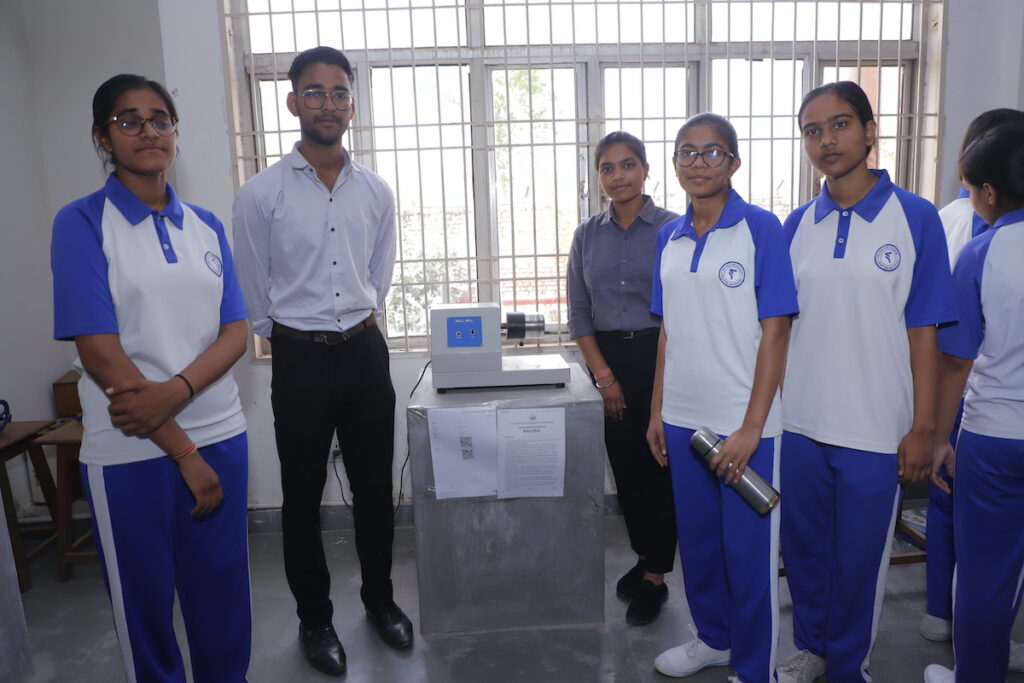
Diploma in Pharmacy (DPharma) is a specialized educational program aimed at preparing individuals for careers in the pharmaceutical and healthcare sectors. The Eligibility Criteria for DPharma must be met to enroll in this program, which offers essential training for aspiring pharmacy professionals. The full form of DPharma is Diploma in Pharmacy.
Introduction to Diploma in Pharmacy Course
Program Overview
Objective
The DPharma program aims to equip students with foundational knowledge and practical skills necessary to become effective pharmacists. The Eligibility Criteria for DPharma must be fulfilled to enroll in this program, which covers various aspects of pharmacy, including drug development, patient care, and pharmaceutical ethics.
Duration
Typically 2 years, divided into four semesters.
Mode of Study
Available as full-time, part-time, or distance learning, depending on the institution.
Curriculum
Core Subjects
The curriculum covers a broad range of topics such as:
Pharmaceutical Chemistry
Study of drug composition and properties.
Pharmacology
Understanding drug actions and effects on the body.
Pharmacognosy
Study of natural drugs derived from plants and other sources.
Pharmaceutical Jurisprudence
Legal and ethical aspects of pharmacy Course practice.
Community Pharmacy
Focus on the role of pharmacists in community health.
Hospital Pharmacy
Skills for working in a hospital setting, including drug distribution and patient care.
Practical Training
Includes laboratory work and internships to provide hands-on experience in drug dispensing, patient interactions, and pharmacy course operations.
Admission requirements
Educational Qualification
Generally requires completion of 10+2 (higher secondary education) with a background in Science, particularly Physics, Chemistry, and Biology.
Minimum Marks
Institutions may have specific percentage requirements for admission.
Admission Process
Entrance Exams
Some colleges may conduct entrance examinations or interviews for selection.
Direct Admission
Many institutions offer direct admission based on academic performance in the qualifying exams.
Career Opportunities
Roles
DPharma graduates can pursue careers as:
Retail Pharmacists
Dispensing medications and advising patients in retail settings.
Hospital Pharmacists
Managing medication therapies and providing patient care in hospitals.
Pharmaceutical Sales Representatives
Promoting and selling pharmaceutical products.
Quality Control Analysts
Ensuring the quality and safety of drugs in pharmaceutical companies.
Drug Inspectors
Regulating and inspecting pharmaceutical practices and products.
Settings
Opportunities in pharmacies, hospitals, pharmaceutical companies, research institutions, and regulatory bodies.
Further Studies
Advancement
Graduates may pursue higher education such as a Bachelor of Pharmacy (BPharma) or specialized certifications in fields like Pharmaceutical care or pharmaceutical management.
Regulations and Accreditation
Regulatory Bodies
The DPharma program is often regulated by national or state pharmacy councils that set educational standards and ensure the program meets industry requirements.
Accreditation
Accredited institutions are recognized for maintaining quality education and training in the pharmaceutical field.
Significance
Healthcare Impact
DPharma graduates play a crucial role in healthcare by ensuring the safe and effective use of medications, offering advice on drug-related issues, and contributing to community health through various pharmacy services.
Eligibility Criteria and Admission Process for Pharmacy Council
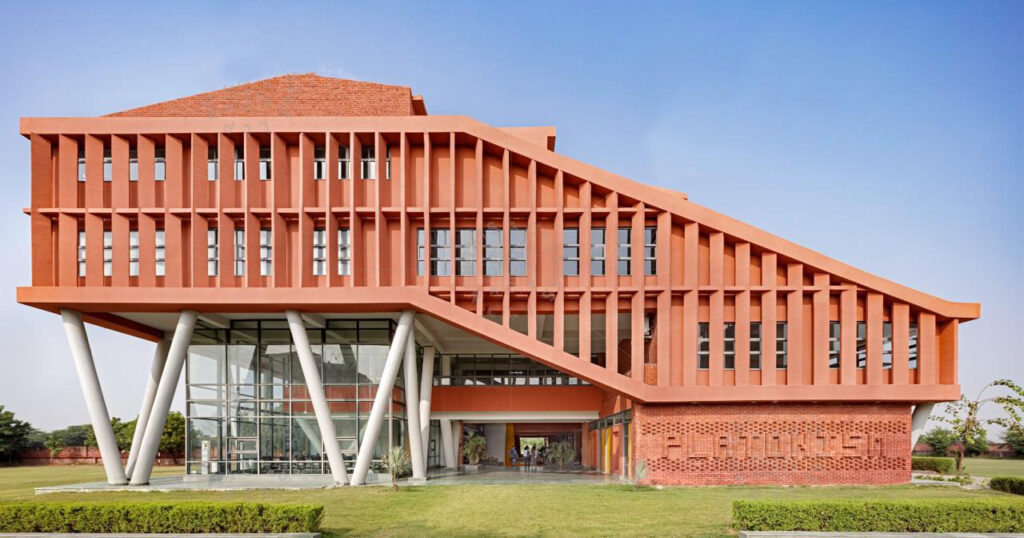
The Eligibility Criteria for DPharma and the admission process for the Diploma in Pharmacy course typically involve several key aspects, including academic qualifications, entrance exams, and minimum age requirements.
Pharmacy college admission is based on entrance examinations and merit.
The Pharmacy Council regulates the DPharma program and ensures it meets industry standards.
Eligibility Criteria for DPharma
Educational Qualification
Minimum Requirement
Candidates should have completed their higher secondary education (10+2) from a recognized board.
Subjects
The qualifying examination should include Science subjects, typically Physics, Chemistry, and Biology. Some institutions may also accept Mathematics in place of Biology.
Minimum Marks
Percentage
Many institutions require a minimum percentage of marks in the qualifying examination. This is often around 50% to 60%, but it can vary depending on the institution.
The D Pharma course provides a registered pharmacy qualification, enabling graduates to pursue various professional roles in Pharmaceutical practice.
Age Limit
Age Requirements
There may be an age limit specified by some institutions, though it is generally not stringent. Candidates should check specific age requirements of the colleges they are interested in.
Other Requirements
Language Proficiency
Proficiency in English or the medium of instruction used by the institution may be required. Some institutions might have language proficiency tests or requirements.
Pharmacy Admission Process
Application Form
Submission
Candidates need to fill out and submit an application form, which is typically available on the institution’s website or can be obtained from the college.
Documents Required
Along with the application form, candidates may need to submit copies of academic transcripts, a passport-sized photograph, proof of age, and other relevant documents.
Entrance Examination
Institutional Tests
Some colleges conduct their own entrance exam to assess candidates’ knowledge and suitability for the program.
State-Level Tests
In some cases, state-level or national-level entrance examinations may be used for admission.
Direct Admission
Merit-Based
Many institutions offer direct admission based on the candidate’s academic performance in the 10+2 examinations.
Cut-Off Marks
Institutions may set a cut-off percentage for admission, and candidates meeting or exceeding this threshold are offered admission.
Counseling and Interview
Counseling
Some colleges conduct counseling sessions to help students understand the program and its requirements.
Interview
A few institutions might conduct interviews or group discussions as part of the admission process.
Final Selection
Merit List
Based on the entrance exam scores, academic performance, or interview results, a merit list is prepared.
Admission Offer
Selected candidates are offered admission and are required to complete the enrollment process by submitting the necessary documents and paying the required fees.
Fee Payment
Fee Structure
Once admitted, students must pay the tuition and other fees as per the college’s fee structure. This may include admission fees, course fees, laboratory fees, and other charges.
Commencement of Classes
Orientation
Before classes start, many institutions conduct an orientation program to introduce students to the course structure, faculty, and campus facilities.
Top Colleges for DPharma
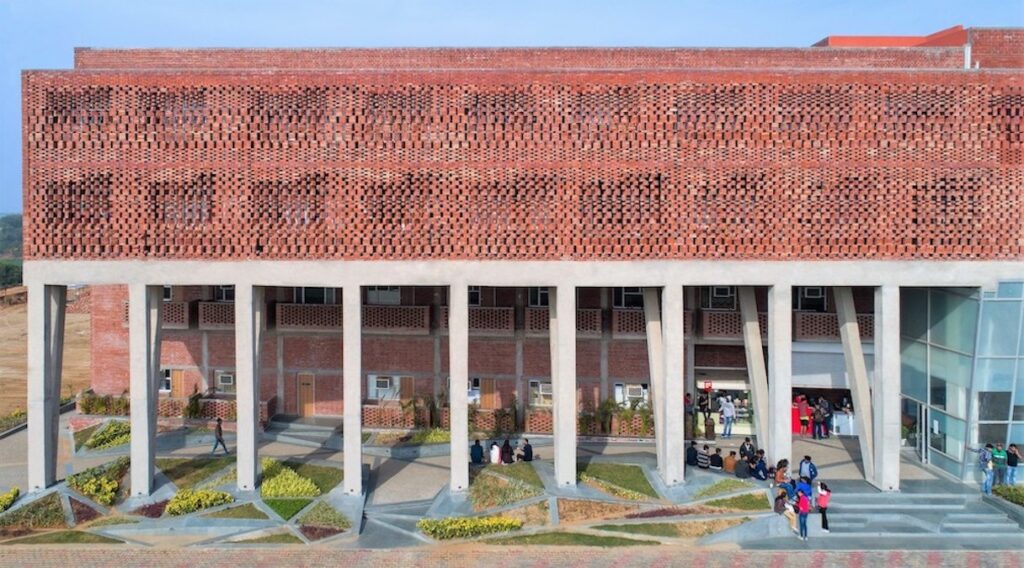
Here is an overview of some of the top colleges for a Diploma in Pharmacy (DPharma) in India.
These institutions are known for their quality education, infrastructure, and industry connections
Government College of Pharmacy, Mumbai
Overview: A prestigious government institution offering a comprehensive DPharma program with a strong emphasis on practical training.
Key Highlights
Affiliation: Maharashtra State Board of Technical Education
Facilities: Modern laboratories, experienced faculty, and industry links.
Location: Mumbai, Maharashtra
St. Andrews College of Pharmacy (SACP)
Overview: Offers a well-structured DPharma program with a focus on practical training and industry readiness.
Key Highlights
Affiliation: Pharmacy Council of India (PCI), Haryana State Board of Technical Education (HSBTE)
Facilities: Modern labs, experienced faculty, and good placement records.
Location: Gurgaon, Haryana
Jamia Hamdard University, Delhi
Overview: Known for its robust Pharmaceutical practice, Jamia Hamdard offers a well-regarded D Pharma course with excellent research and practical training.
Key Highlights
Affiliation: Jamia Hamdard University
Facilities: Advanced research facilities, skilled faculty, and comprehensive curriculum.
Location: New Delhi, Delhi
Institute of Chemical Technology (ICT), Mumbai
Overview: ICT provides a rigorous DPharma program with a focus on chemical and pharmaceutical sciences.
Key Highlights
Affiliation: Autonomous Institute
Facilities: State-of-the-art labs, industry partnerships, and strong placement support.
Location: Mumbai, Maharashtra
B.P. Koirala Institute of Health Sciences, Dharan
Overview: A prominent institution in Nepal known for its quality Pharmaceutical practice, including DPharma.
Key Highlights
Affiliation: Tribhuvan University
Facilities: Comprehensive healthcare training, modern infrastructure, and research facilities.
Location: Dharan, Nepal
National College of Pharmacy, Bangalore
Overview: Offers a strong DPharma program with a focus on pharmaceutical education and hands-on experience.
Key Highlights
Affiliation: Rajiv Gandhi University of Health Sciences
Facilities: Modern labs, well-qualified faculty, and excellent placement support.
Location: Bangalore, Karnataka
P.D. Patel Institute of Applied Sciences, Gujarat
Overview: Known for its comprehensive DPharma program and emphasis on applied pharmaceutical sciences.
Key Highlights
Affiliation: Sardar Patel University
Facilities: Advanced facilities, research labs, and experienced faculty.
Location: Gujarat
JSS College of Pharmacy, Mysuru
Overview: Offers a reputed DPharma program with a focus on pharmaceutical education and practical experience.
Key Highlights
Affiliation: JSS Academy of Higher Education & Research
Facilities: Modern infrastructure, experienced faculty, and strong industry connections.
Location: Mysuru, Karnataka
D Pharma Course Fees and Duration

Course Duration
Standard Duration
The Diploma in Pharmacy (DPharma) program typically spans 2 years.
These 2 years are divided into four semesters, each focusing on different aspects of pharmaceutical sciences, practical training, and patient care.
At the end of the 2-year course, students usually undergo practical training or an internship, which may last from a few weeks to several months, depending on the institution’s requirements.
Academic Structure
The curriculum includes both theoretical classes and laboratory work, with subjects like Pharmaceutical Chemistry, Pharmacology, Pharmacognosy, and Pharmaceutical practice.
Course Fees
Fee Range
The fees for the D Pharma course vary widely depending on the type of institution (government or private) and the location.
Government Colleges
The fee structure in government colleges is usually lower, ranging from INR 5,000 to INR 50,000 per year.
Private Colleges
In private institutions, the fees are generally higher, ranging from INR 50,000 to INR 1,50,000 per year.
Factors Affecting Fees
Institution Type
Government institutions typically charge lower fees compared to private colleges.
Location
Colleges in metropolitan areas or highly sought-after regions may have higher fees.
Facilities and Infrastructure
Institutions with advanced facilities, modern laboratories, and better infrastructure may charge higher fees.
Scholarships and Financial Aid
Many institutions offer scholarships or financial aid based on merit or economic need, which can reduce the overall cost.
Additional Costs
Books and Materials
Students should also consider the cost of textbooks, lab materials, and other educational resources, which can range from INR 5,000 to INR 10,000 per year.
Uniforms and Equipment
Some colleges require specific uniforms or equipment for laboratory work, which may incur additional costs.
Exam and Registration Fees
There may also be separate fees for examinations, registration, and other administrative costs.
D Pharma Course Syllabus and Curriculum
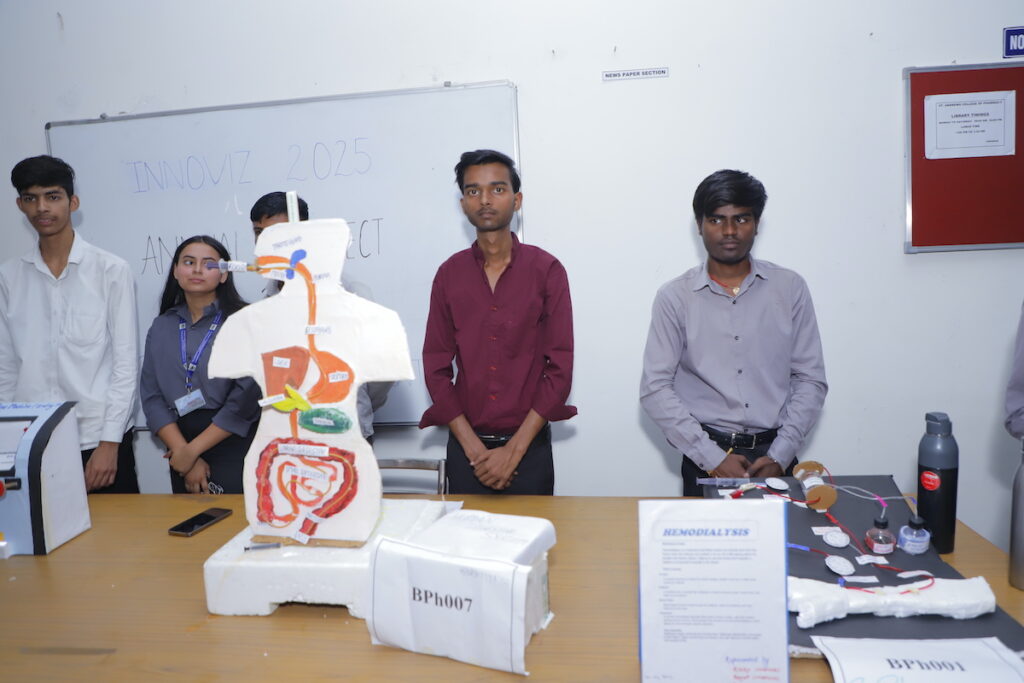
The Diploma in Pharmacy (D Pharma) program is designed to provide students with comprehensive knowledge and skills in pharmaceutical sciences. The syllabus is structured to cover essential theoretical concepts, practical skills, and industry-relevant knowledge.
Course Structure
Duration
2 years, divided into four semesters
Mode
Combines classroom instruction, laboratory work, and practical training
First Year
Pharmaceutics I
Focus: Introduction to pharmacy, including the history of pharmacy, pharmaceutical formulations, and the basics of Pharmaceutical practice.
Key Topics
Pharmaceutical Aids: Study of various pharmaceutical aids like talc, kaolin, bentonite, etc.
Dosage Forms: Introduction to different dosage forms such as tablets, capsules, and syrups.
Compounding: Basics of pharmaceutical compounding and dispensing.
Pharmaceutical Chemistry I
Focus: Basic chemistry concepts applied to pharmaceutical compounds.
Key Topics
Inorganic Pharmaceutical Chemistry: Study of chemical properties, uses, and preparation of inorganic compounds used in pharmacy.
Acids, Bases, and Buffers: Understanding their role in pharmaceuticals.
Pharmaceutical Calculations: Basic calculations involved in drug formulation and dispensing.
Pharmacognosy
Focus: Study of medicinal plants and natural products used in pharmacy.
Key Topics
Introduction to Pharmacognosy: Origin, history, and scope.
Crude Drugs: Identification and classification of crude drugs.
Herbal Drugs: Study of various herbal drugs and their uses.
Biochemistry and Clinical Pathology
Focus: Understanding biochemical processes and their clinical significance.
Key Topics
Enzymes: Role and function of enzymes in biochemical reactions.
Metabolism: Carbohydrate, protein, and lipid metabolism.
Clinical Pathology: Basics of clinical pathology, including laboratory tests and their interpretation.
Human Anatomy and Physiology
Focus: Basic understanding of human body systems and their functions.
Key Topics
Body Systems: Study of various systems such as the nervous, cardiovascular, respiratory, and digestive systems.
Physiological Processes: Understanding normal physiological processes and their relevance to pharmacy.
Health Education and Community Pharmacy
Focus: Role of pharmacists in community health and education.
Key Topics
Health Promotion: Principles of health promotion and disease prevention.
Public Health: Basics of public health and community Pharmaceutical practice.
Patient Counseling: Techniques and importance of patient counseling.
Second Year
Pharmaceutics II
Focus: Advanced study of pharmaceutical formulations and dispensing practices.
Key Topics
Pharmaceutical Dosage Forms: Detailed study of different dosage forms like emulsions, suspensions, and parenteral preparations.
Dispensing Pharmacy: Principles and practices of dispensing prescriptions.
Sterile Products: Preparation and quality control of sterile pharmaceutical products.
Pharmaceutical Chemistry II
Focus: Advanced pharmaceutical chemistry, focusing on organic compounds.
Key Topics
Organic Chemistry: Study of organic compounds and their reactions relevant to pharmacy.
Medicinal Chemistry: Introduction to medicinal chemistry and drug design.
Synthesis of Drugs: Basic principles of drug synthesis and analysis.
Pharmacology and Toxicology
Focus: Study of drug actions, interactions, and toxicology.
Key Topics
Pharmacodynamics and Pharmacokinetics: Mechanisms of drug action, absorption, distribution, metabolism, and excretion.
Adverse Drug Reactions: Understanding and managing adverse drug reactions and drug toxicity.
Toxicology: Study of toxic substances and their effects on the human body.
Pharmaceutical Jurisprudence
Focus: Legal and ethical aspects of pharmacy practice.
Key Topics
Pharmacy Act: Overview of laws governing pharmacy practice.
Drug Regulations: Understanding drug regulations, including the Drugs and Cosmetics Act.
Ethics in Pharmacy: Professional ethics and responsibilities of pharmacists.
Drug Store and Business Management
Focus: Fundamentals of managing a pharmacy or drug store.
Key Topics
Pharmacy Management: Basics of inventory management, accounting, and financial management in a pharmacy.
Retail Pharmacy: Principles of retail pharmacy management, including sales and customer service.
Business Skills: Basic business and management skills relevant to running a pharmacy.
Hospital and Clinical Pharmacy
Focus: Role of pharmacists in hospital settings and Pharmaceutical care practice.
Key Topics
Hospital Pharmacy: Organization and functioning of hospital pharmacies.
Clinical Pharmacy: Role of clinical pharmacists in patient care, including medication therapy management.
Drug Interactions: Understanding and managing drug interactions in clinical practice.
Practical Training
Laboratory Work
Regular practical sessions to apply theoretical knowledge, including drug formulation, chemical analysis, and quality control.
Internship
Compulsory practical training in hospital or community pharmacies, usually ranging from a few weeks to several months, depending on the institution. This hands-on experience is crucial for understanding real-world pharmacy operations and patient care.
Career Scope and Job Opportunities in the Pharmaceutical Industry
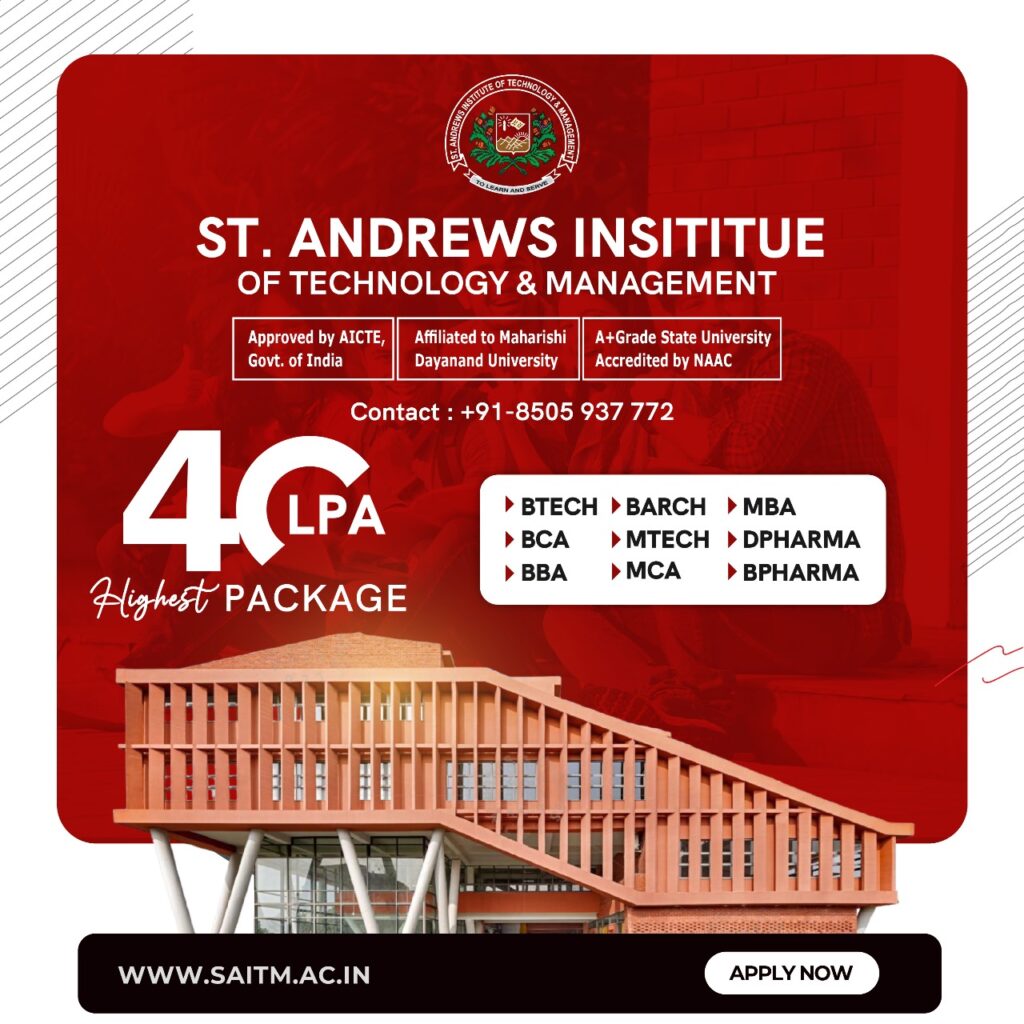
A Diploma in Pharmacy (DPharma) offers numerous career opportunities in the healthcare and pharmaceutical sectors. The program provides graduates with essential skills and knowledge, preparing them for various entry-level roles in pharmacy-related fields. Once the Eligibility Criteria for DPharma are met, students can explore a wide range of job opportunities. Below is an overview of the career scope and positions available after completing a DPharma.
Retail Pharmacist
Role
Retail pharmacists work in community pharmacies or retail drugstores, dispensing medications, providing patient counseling, and ensuring the safe and effective use of medicines.
Responsibilities
Dispensing prescription and over-the-counter medications.
Advising patients on the proper use of medications.
Managing inventory and stocking of pharmaceutical products.
Career Path
With experience, retail pharmacists can advance to managerial roles or even open their own pharmacies.
Hospital Pharmacist
Role
Hospital pharmacists work in hospital pharmacies, collaborating with healthcare professionals to manage and dispense medications for inpatients and outpatients.
Responsibilities
Preparing and dispensing medications in a hospital setting.
Monitoring patients’ drug therapies and advising on dosage adjustments.
Participating in clinical trials and research within the hospital.
Career Path
Hospital pharmacists can progress to senior roles such as Chief Pharmacist or move into specialized areas like clinical pharmacy or hospital administration.
Pharmaceutical Sales Representative
Role
Sales representatives, also known as medical sales representatives, promote pharmaceutical products to doctors, hospitals, and pharmacies.
Responsibilities
Meeting healthcare professionals to promote and sell pharmaceutical products.
Providing product information and answering queries about drug therapies.
Achieving sales targets and building relationships with clients.
Career Path
Successful sales representatives can move up to managerial positions in pharmaceutical companies or specialize in high-value products.
Quality Control/Assurance Analyst
Role
These professionals work in pharmaceutical manufacturing, ensuring that drugs meet regulatory standards for quality, safety, and efficacy.
Responsibilities
Conducting tests and inspections on pharmaceutical products.
Ensuring compliance with Good Manufacturing Practices (GMP).
Documenting and reporting quality control results.
Career Path
With experience, QC/QA analysts can advance to supervisory roles or specialize in regulatory affairs.
Pharmacy Technician
Role
Pharmacy technicians assist pharmacists in dispensing medications, managing inventory, and maintaining records.
Responsibilities
Preparing and labeling prescriptions.
Assisting in the preparation of intravenous medications.
Managing pharmacy inventory and supplies.
Career Path
Pharmacy technicians can progress to senior technician roles or pursue further education to become licensed pharmacists.
Production Executive in Pharmaceutical Companies
Role
Production executives oversee the manufacturing processes in pharmaceutical plants, ensuring that products are produced efficiently and in compliance with regulations.
Responsibilities
Supervising the production of pharmaceutical products.
Ensuring adherence to production schedules and quality standards.
Coordinating with other departments to ensure smooth operations.
Career Path
Production executives can advance to higher management roles or specialize in areas such as supply chain management.
Regulatory Affairs Associate
Role
Regulatory affairs associates work in pharmaceutical companies, ensuring that products comply with all regulations and standards before they reach the market.
Responsibilities
Preparing and submitting documentation for drug approvals.
Ensuring compliance with regulatory requirements.
Liaising with regulatory agencies to resolve any issues.
Career Path
Regulatory affairs associates can advance to roles such as Regulatory Affairs Manager or specialize in global regulatory strategies.
Entrepreneurship – Starting Your Own Pharmacy
Role
Graduates with a D Pharma can start their own pharmacy or drugstore, offering retail pharmacy services to the community.
Responsibilities
Managing the day-to-day operations of a pharmacy.
Dispensing medications and providing healthcare advice.
Managing inventory, finances, and customer relations.
Career Path
As business owners, pharmacists can expand their operations, open multiple locations, or diversify into related businesses.
Further Studies – Bachelor of Pharmacy (BPharma)
Role
Many D Pharma graduates opt to pursue further studies, such as a Bachelor of Pharmacy (BPharma), to enhance their career prospects.
Opportunities
A BPharma degree opens up advanced career opportunities in research, drug development, clinical pharmacy, and academia.
Government Sector Jobs
Role
D Pharma graduates can also find opportunities in the public sector, such as working for government hospitals, healthcare departments, or public health organizations.
Responsibilities
Similar to roles in the private sector, but often involve working with a broader patient base and adhering to government protocols.
Career Path
Government jobs often come with additional benefits like job security, pensions, and opportunities for advancement.
D Pharma vs BPharma

Choosing between a Diploma in Pharmacy (D Pharma) and a Bachelor of Pharmacy (BPharma) depends on various factors such as career goals, duration of study, and long-term opportunities. Here’s a detailed comparison to help you decide which course might be better suited for you.
Course Duration and Structure
D Pharma
Duration
2 years
Structure
The D Pharma program is a diploma-level course focusing on the basics of pharmacy, including drug formulation, dispensing, and pharmacy law. The course is designed to provide students with practical skills and knowledge to work as pharmacists or pharmacy technicians in a short period.
BPharma
Duration
4 years
Structure
BPharma is a degree-level course that offers in-depth knowledge of pharmaceutical science, including subjects like pharmacology, medicinal chemistry, and pharmaceutical engineering. The program includes both theoretical studies and practical training, preparing students for a broader range of careers in the pharmaceutical industry, research, and academia.
Eligibility Criteria
D Pharma
Eligibility
Students must have completed their 10+2 education (or equivalent) with Physics, Chemistry, and Biology/Mathematics as core subjects. Some institutions may require a minimum percentage in these subjects.
BPharma
Eligibility
Requires completion of 10+2 with Physics, Chemistry, and Biology/Mathematics. Additionally, students may need to pass entrance exams like NEET, JEE, or state-level exams for admission to top BPharma colleges.
Career Opportunities
D Pharma
Job Roles
D Pharma graduates can work as retail pharmacists, hospital pharmacists, pharmaceutical sales representatives, or pharmacy technicians. The course is ideal for those looking to enter the workforce quickly.
Scope
D Pharma is primarily focused on dispensing and managing medications in community and hospital settings. Graduates typically work under the supervision of licensed pharmacists or healthcare professionals.
BPharma
Job Roles
BPharma graduates have a wider range of career options, including roles in drug manufacturing, quality control, clinical research, regulatory affairs, pharmaceutical marketing, and academia. They can also work as registered pharmacists.
Scope
BPharma graduates are eligible for more advanced positions in the pharmaceutical industry, research, and education. The degree also provides a strong foundation for higher studies, such as MPharma or a PhD.
Salary and Return on Investment (ROI)
D Pharma
Salary
The starting salary for D Pharma graduates typically ranges from INR 2.5 to 4 lakhs per annum. While the initial investment in education is lower, the earning potential is also relatively modest compared to BPharma.
ROI
D Pharma offers a quicker return on investment due to the shorter course duration and lower fees, but the long-term earning potential is generally lower.
BPharma
Salary
BPharma graduates can expect starting salaries ranging from INR 3 to 6 lakhs per annum, with potential for higher earnings as they gain experience and pursue advanced roles.
ROI
While the BPharma course requires a longer time and higher financial investment, the degree offers better long-term earning potential and career growth.
Job Market Demand
D Pharma
Demand
There is a consistent demand for D Pharma graduates in retail and hospital pharmacies, especially in regions with a high need for healthcare services. However, the roles are generally more limited in scope.
BPharma
Demand
BPharma graduates are in high demand across various sectors of the pharmaceutical industry, including research, manufacturing, and regulatory affairs. The degree offers a broader range of job opportunities and career growth.
Skill Development
D Pharma(Diploma in Pharmacy))
Skills Acquired
DPharma(Diploma in Pharmacy) focuses on practical skills in pharmacy practice, drug dispensing, and basic pharmaceutical science. It’s ideal for students looking to develop hands-on skills for immediate employment.
BPharma
Skills Acquired
BPharma provides a comprehensive education in pharmaceutical science, including research, development, and quality control. The program also emphasizes critical thinking, problem-solving, and advanced technical skills.
FAQs
What is a D pharmacy course?
A D Pharmacy (Diploma in Pharmacy) is a 2-year program that provides foundational knowledge in pharmaceuticals, preparing students for roles such as pharmacy technician, assistant, or entry-level positions in the pharmaceutical industry. The Eligibility Criteria for DPharma must be met to gain admission to this program.
Does D pharmacy require NEET?
No, D pharmacy (Diploma in Pharmacy) typically does not require NEET (National Eligibility Entrance Test) for admission.
Can I pursue BPharm after completing my DPharma(Diploma in Pharmacy)?
Yes, one can pursue BPharm after completing DPharma(Diploma in Pharmacy) through lateral entry, starting from the 2nd year.
What are the eligibility criteria for D pharmacy?
The admission requirements for a Diploma in Pharmacy (DPharma) generally include the completion of 10+2 education with a minimum of 50% aggregate marks in science subjects, such as Physics, Chemistry, and Biology/Mathematics, from a recognized board. The Eligibility Criteria for DPharma may also involve passing an entrance exam at some institutions. The minimum age for admission is typically 17 years.
What is the education qualification for D Pharma Ke Liye?
To pursue a Diploma in Pharmacy (DPharma), the Eligibility Criteria for DPharma require the completion of 10+2 (or equivalent) with Physics, Chemistry, and Biology/Mathematics as core subjects. These subjects must be studied in high school from a recognized educational board. Additionally, some institutions may set a minimum percentage in these subjects, and entrance exams might be required for admission to top colleges.
Who is eligible for D pharmacy?
To apply for a Diploma in Pharmacy, the Eligibility Criteria for DPharma require candidates to have completed their 10+2 (or equivalent) education with core subjects such as Physics, Chemistry, and Biology or Mathematics from a recognized board. Additionally, institutions may ask for a minimum aggregate percentage, usually between 50-60%. Some colleges also consider entrance exams or state-level test scores for admission.
Can a PCM student do D pharmacy?
Yes, a PCM (Physics, Chemistry, Mathematics) student can pursue a Diploma in Pharmacy (DPharma). While the Eligibility Criteria for DPharma generally require students to have studied Biology along with Physics and Chemistry in their 10+2 education, many institutions also accept candidates with a PCM background. However, it is essential to check the specific eligibility criteria of the institution you are applying to, as it may vary.




